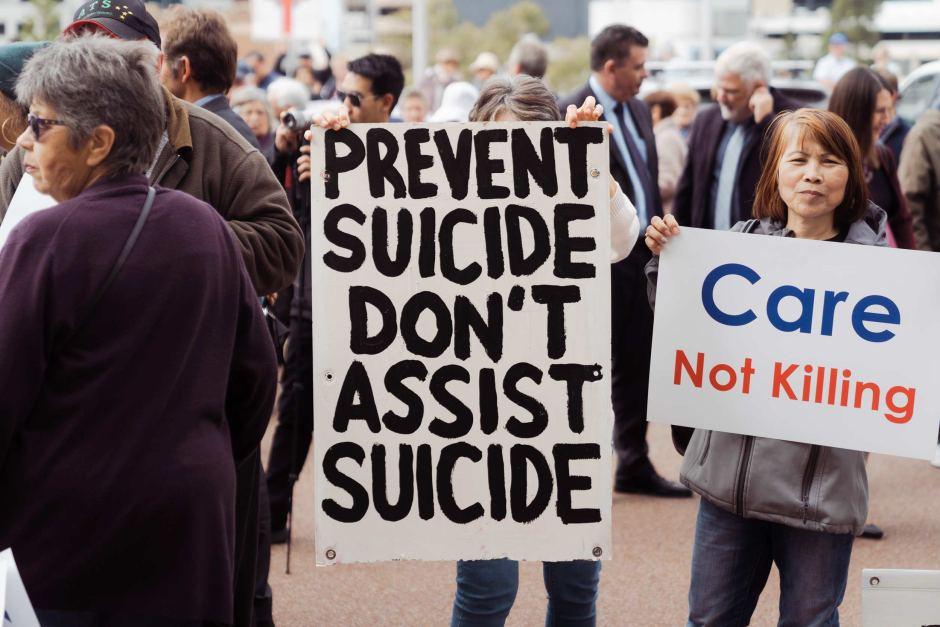
3 minute read
Euthanasia and the Law
Wholly, as time has progressed, more regions have begun to abandon the use of the Hippocratic oath due to its lack of relevance to modern day society, and in turn, have hosted more progress towards euthanasia and physician assisted suicide, due to a stronger belief in its ethics. But there is still progress to make, and eventually, we hope to see a time where it will be accepted that the only humane choice in a euthanasia and PAS scenario, is to enable individuals who are suffering to have the right to decide to end their suffering.
By Ruby Qureshi, Year 10 North London Collegiate
Advertisement
Law in medicine. Perhaps not the most obvious link or intertwining, but so apparent in everyday life, and so often missed. I would like to talk about a rather obvious case of law in medicine that has been debated for so many years, giving my take on the topic of euthanasia, as well as the medical and ethical laws that surround it. Euthanasia, defined as ‘the painless killing of a patient suffering from an incurable and painful disease or in an irreversible coma’ has been fought against, fought for and overall argued about for so long now. Going from the definition alone, to me, it sounds obvious that this is a perfectly ethically moral and smart thing to do. Painless killing, a suffering patient, what could be the reason that some may reject the idea so thoroughly. From a medical standpoint it is widely known that doctors would always want the best for the patients, so is euthanasia always the case? And
if so, is it morally right or acceptable for a doctor’s view on the
subject to prolong a patient’s endless suffering?
Christopher Cowley argues that we have ‘misunderstood the special nature of medicine and have misunderstood the motivations of the conscientious objectors.’ In my opinion, we have not. In the Netherlands recently, three euthanasia cases involving women with psychiatric conditions and dementia are under investigation. Prosecutors confirmed that the deaths, in 2017 and 2018, were being investigated for potentially breaching strict conditions in the 2002 law that allows people in the Netherlands to ask a doctor to help them die. Dutch euthanasia laws require patients to be experiencing unbearable suffering, with no prospect of improvement, and to have a voluntary sustained wish to die; doctors must also seek a second independent opinion. According to a report by the Dutch Regional Euthanasia Committees, prosecutors are investigating a doctor for
failing to treat the case of a woman with ‘due diligence’. A woman in her 70s with depression had been operated on for abdominal problems when surgeons found evidence of lung cancer, leading her to approach a doctor and speak her concern about her experiencing unbearable psychological suffering and wanted euthanasia. Her doctor’s colleague took on the case, however the review committee reported he failed to obtain a second opinion from an independent psychiatrist, as is required. Was this intentional, due to him not believing that her case was worth a second opinion or merely a mistake on his part? Judging from the state of the woman from a medical standpoint, it can be argued to be the latter.
And so the question reappears, is it morally right or acceptable for a doctor’s view on the subject to prolong a patient’s endless suffering? With the Netherland’s strict yet precautious laws in place, it is evidently not legally acceptable. Yet in countries with no or less

strict laws on the matter, is a punishment or sentence for the doctor the morally right thing to do? This doctor’s personal moral views led to a woman, who had been living daily with an unimaginable amount of pain, not being treated the way the law required, having to carry on her unbearable suffering for a prolonged amount of time. In countries with less developed laws surrounding the topic of euthanasia, you must wonder how many of these situations go unnoticed or most likely not cared about.
Perhaps these questions of if it is morally right for a doctor’s view to prolong the suffering of a patient will never be fully known or answered, but from my point of view, euthanasia is a choice by the patient who is obviously suffering from some form of pain daily. Doctors, although having years of medical training, do not reserve the right to decide a person’s life and continuation of suffering based on their own moral opinions.










